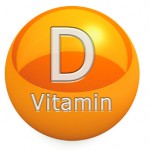WASHINGTON, D.C.—Vitamin D has gotten a lot of press over the years. But is it actually worth the hype, especially when it comes to autoimmunity? Does it prevent the onset of autoimmune disease? Does it have a role in treatment?

Dr. Karen Costenbader
At ACR Convergence 2024, Karen Costenbader, MD, MPH, Michael Weinblatt, MD Distinguished Chair of Rheumatology and director, Lupus Program, Brigham and Women’s Hospital, and professor of medicine, Harvard Medical School, Boston, shared updates in the world of vitamin D and autoimmunity.
Reduction in Autoimmunity
Cross-sectional case-control studies have shown that people with many different rheumatic diseases (and perhaps chronic inflammatory diseases in general) have lower levels of serum 25-hydroxy-vitamin D (25-OH-D). What’s more, some autoimmune diseases (like multiple sclerosis) are more prevalent at northern latitudes, where less ultraviolet light exposure leads to lower 25-OH-D levels.1
As for the risk of developing rheumatoid arthritis (RA) or systemic lupus erythematosus (SLE), evidence is conflicting. Some studies show a decreased risk with higher baseline 25-OH-D levels, and some show no association. A systematic review performed by Dr. Costenbader and colleagues confirmed that few small studies had been done, both with positive and negative results.2 On the other hand, much hypothesizing had taken place in the literature, which was rife with review articles and editorials.
“There hadn’t been a prospective randomized trial yet that tested the effects of high dose vitamin D supplementation on the incidence of autoimmune disease over time, so we took advantage of the VITamin D and OmegA-3 TriaL (VITAL) trial that was already enrolling patients,” Dr. Costenbader said.3
VITAL was a large trial with over 25,000 participants who were randomized to receive vitamin D3 2,000 IU daily, omega-3 fatty acids 1g daily, both, or placebo. Primary outcomes examined incident cancer and cardiovascular disease diagnoses. The secondary outcome was the incidence of all autoimmune diseases. Dr. Costenbader explained, “We followed these people for five years, and we saw a small but significant reduction in the incidence of all autoimmune disease. We also saw an interaction of vitamin D with body mass index (BMI), with a stronger effect noted in people with low or normal BMIs.” Importantly, there were no significant differences in adverse effects in intervention vs. placebo arms.4
Over a follow-up of five years, the hazard ratio for confirmed incident autoimmune diseases was 0.78 (95% CI 0.61-1.00, P=0.045). Of note, the effect of vitamin D was not instantaneous. “It took two to three years for the curves to separate. It’s not the first day you pop the vitamin d into your mouth. It takes awhile for the effects to be seen,” Dr. Costenbader noted.


